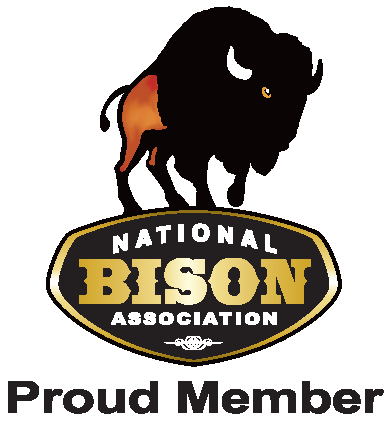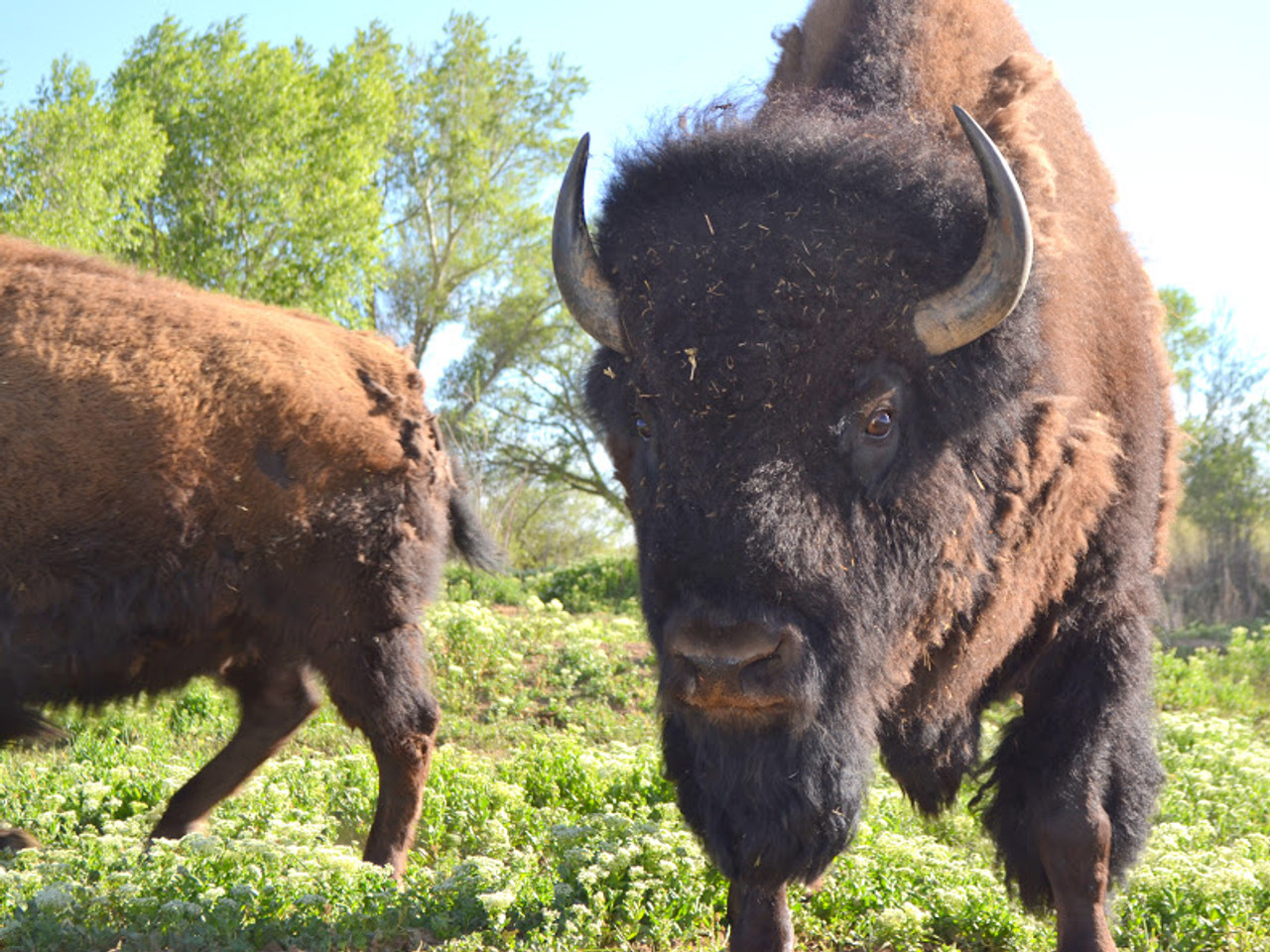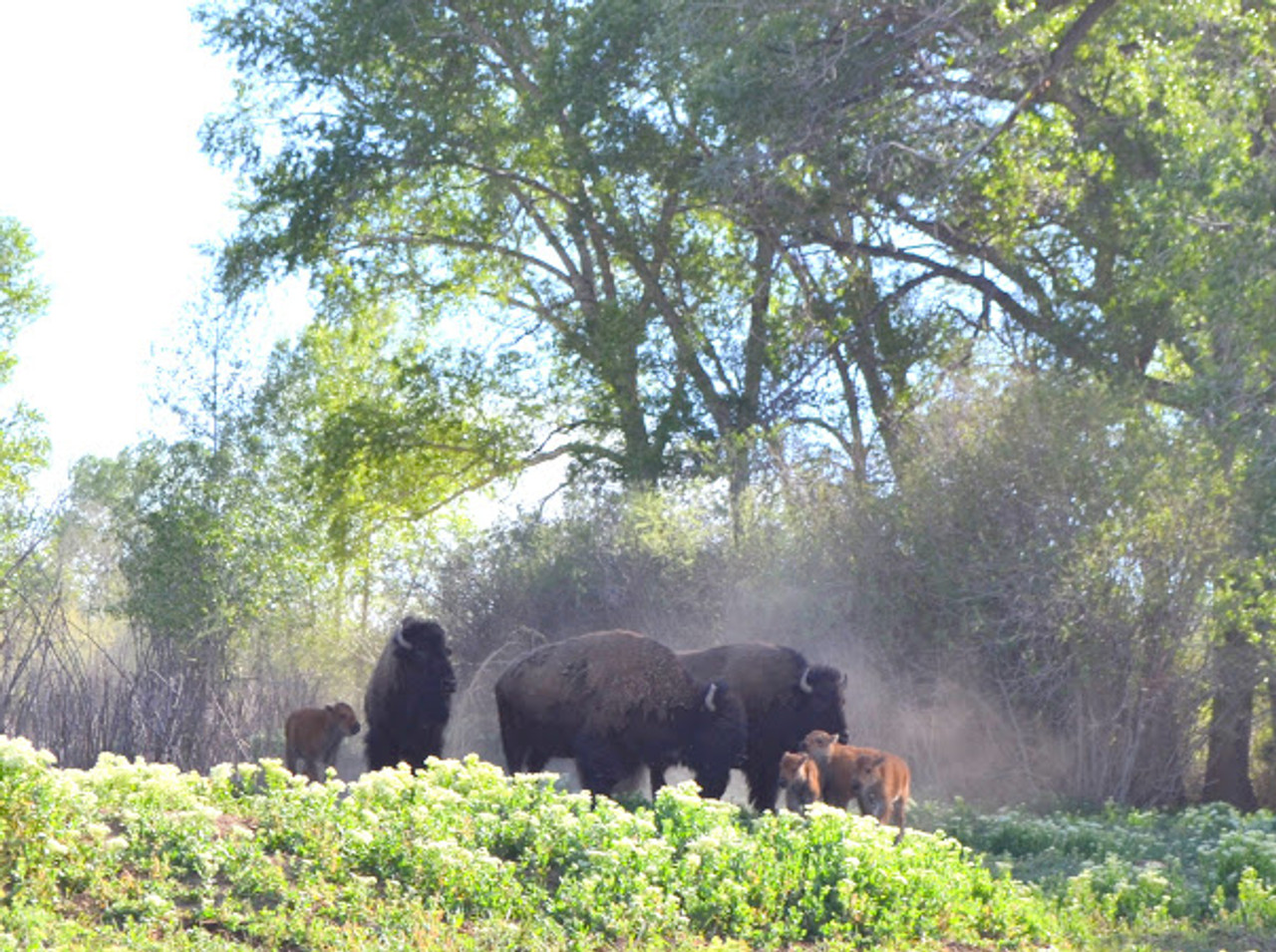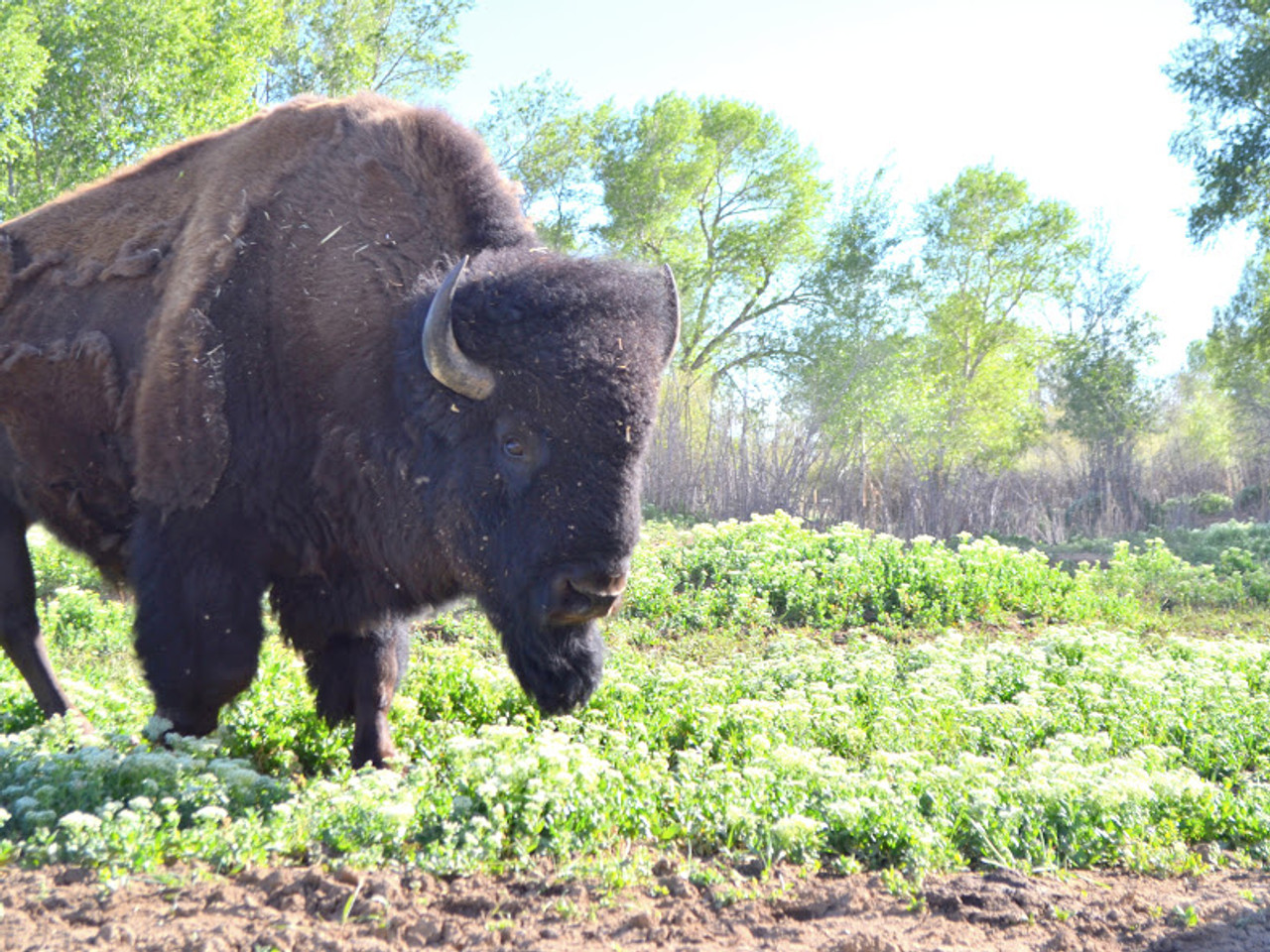
Most Popular Products
-
 $10.00
$10.00 -

Bison Cubed Steaks
$5.50 -

-

Bison New York Strip Steak
$12.25

Why bison meat?
Bison meat is low in fat, high in iron and high in protein! It is also rich in Omega 3/6 which makes it an ideal protein choice for the health-conscious consumer. Many people who have allergies to other meats find they can eat bison meat. There are no low-level antibiotics, no hormones, no drug residues, and no preservatives. While eating bison meat you are eating pure, wholesome meat.

What do our bison eat?
Bison are very efficient when it comes to feed. Our bison are raised on native grasses and legumes in the San Luis Valley. Their metabolism allows them to require less forage in the winter and utilize all available forage in the warm months. Though our forage is extremely high in nutrients, we provide our bison with additional vitamins and minerals through lick blocks.

How do we handle our bison?
Bison are not domesticated animals and require different handling than other livestock. Bison are much more excitable and nervous which are indicators of stress. We work our animals slow, calm and quietly to keep them content and unafraid. We also make sure our herds have adequate spatial requirements in the pasture to reduce stress from competition.

How are our bison processed?
Our desire to treat our bison with care extends all the way to the time of harvest. All bison are processed at a USDA-inspected facility. We work exclusively with our processor because of their quality of work and their handling of our animals. They have designed their operation to specifically ensure humane and low-stress handling of bison prior to harvest.

What is the difference between buffalo and bison?
One of the most common asked questions! People refer to them as both names and that's OK. There are two subspecies of bison in North America: the Plains Bison (mainly in the U.S. & Canada) and the Wood Bison (mainly Canada). The scientific name of the bison is "Bison bison". Bison is usually packaged as "bison" so customers know for sure they are getting bison and not water buffalo.





